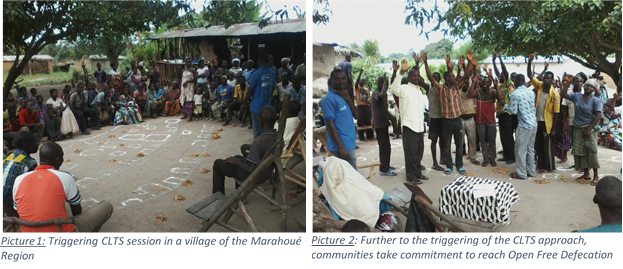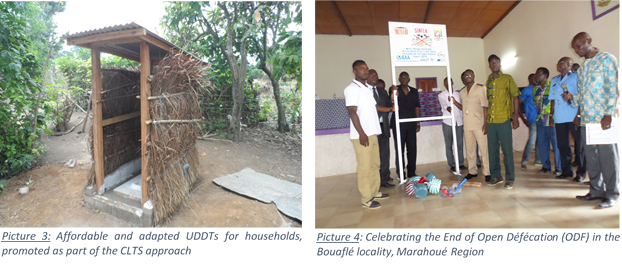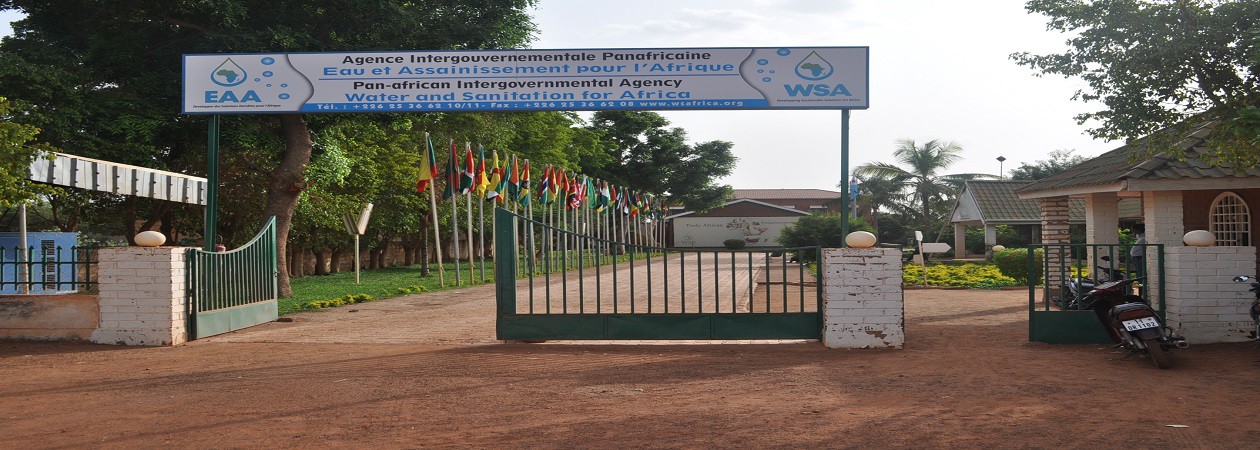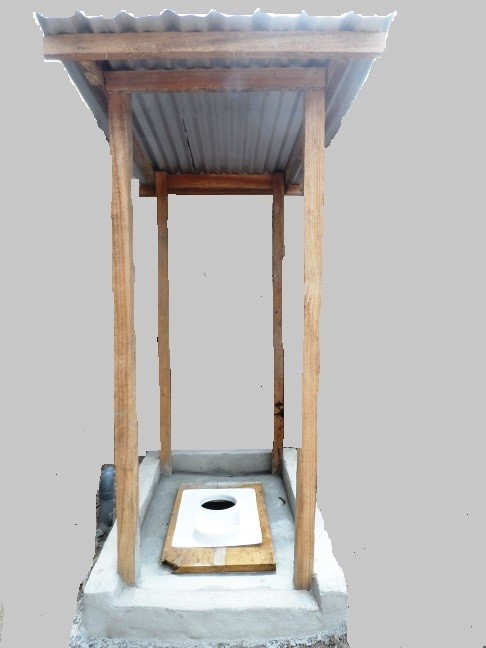In the Marahoué region in Côte d’Ivoire the lack of household sanitation has been the underlying factor of a number of sanitary issues. This situation has contributed to high risks of mortality and morbidity rates. To help significantly reduce these risks, WSA has initiated a project to promote household sanitation in several villages of this region.
The main objective of this ambitious WSA project in Côte d’Ivoire is to contribute to the reduction of poverty, mortality and morbidity in the Marahoué region. Launched since August 2013, the Sanitation component of the Hydraulic and Sanitation Programme for the Millennium (Programme d’Hydraulique et d’Assainissement pour le Millénaire/PHAM) Project intends to sustainably improve people access to hygiene and sanitation in 250 villages of the Marahoué Region. In this perspective, the project is targeting 125 000 beneficiaries in CLTS-triggered and educated 250 villages.

The PHAM project sets to reach specific objectives including:
- at least 100 target villages are ODF (Open Defecation Free) two (02) years after project launch
- good hygiene practices (such as hand washing with water and soap) are adopted by at least 50 000 people from target villages three (03) years after project launch
- improved latrines are used by at least 30 000 people from target villages three (03) years after project launch
- sanitation by-products are used as bio-fertilizers by at least 1 000 farmers
One year ahead of the November 2016 target, the PHAM project has achieved very noteworthy results namely:
- identification and CTLS pre-triggering of 322 villages against 300 initially planned;
- CLTS triggering in 254 villages against 250 initially planned;
- identification and qualification of 578 natural leaders against 500 initially planned;
- setting up of 196 Hygiene Committees against 250 initially planned;
- establishment of 03 Departmental Monitoring Committees (DMCs) to monitor CLTS achievements in 03 departments of the region Marahoué;
- construction of 2 197 latrines after launching the CLTS;
- ODF certification (Open Defecation Free) of 32 villages against 100 initially planned;
- setting up 1 134 handwashing devices in 32 ODF-declared villages;
- construction of 511 UDDTs (Urine Diverting Dry Toilets);
- providing 36 villages with UDDTs, monitor the training of 797 households on the use of the infrastructure;
- training 1 004 farmers (against 1 000 initially targeted) on the use of sanitation by-products as bio-fertilizers and organize them into a cooperative structure;
- Etc.
Net impacts of these achievements are the reduction of expenses related to the purchase of chemical fertilizers in villages with UDDTs; jobs creation for the local labor as masons have been identified and trained; knowledge and adoption of good hygiene practices (hand washing) in 254 CLTS-triggered villages. Also the practice of modern farming techniques; the use of bio fertilizers with the support of project agro-technicians and the reduction of open defecation-related diseases, etc.

Funded by UNICEF-Côte d'Ivoire, The PHAM project is led by WSA with the support of other partners, in this case the European Union, with the assistance of government structures namely the Directorate of Sanitation and Drainage (Direction de l’Assainissement et du Drainage, DAD) and the National Office of Sanitation and Drainage (Office National de l’Assainissement et du Drainage, NADO).




